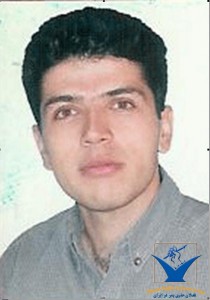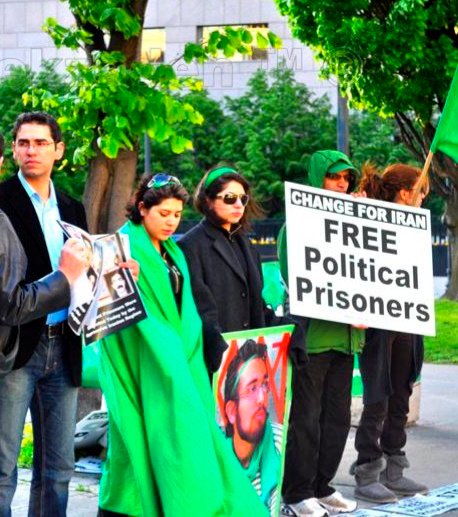Tuesday
May252010
Middle East Inside Line: Israeli Military Drills & Gestures, Palestinian Boycott of Goods, Syria's Assad v. US Congress
 Tuesday, May 25, 2010 at 13:00
Tuesday, May 25, 2010 at 13:00
Israel's "Turning Point 4" Military Operation: The Israeli Defense Forces have released a video about their drill, allegedly designed as preparation against Hezbollah in Lebanon.
[youtube]http://www.youtube.com/watch?v=bsVe7Dg9h8c[/youtube]
Israel's "Goodwill Measures": The Jewish Telegraphic Agency gave more details on the Israeli gestures towards Palestine that we noted on Sunday. The measures include allowing Israeli tour guides to enter the Palestinian city of Bethlehem and allowing tourists to enter the city via all crossings; removing 60 roadblocks throughout the West Bank; easing restrictions on senior Palestinian businessmen going through security checkpoints; and permitting Israeli-Arab civilians to travel through all security crossings located on the West Bank security fence.
Palestinian Authority's Boycott of Israeli Goods: With proximity talks, discussion has arisen over the Palestinian boycott of Israeli goods produced in the West Bank and the Golan Heights. Jeff Barak, a former editor-in-chief of The Jerusalem Post, said that "Palestinians' boycott is a political act that does not contribute to the positive atmosphere needed to help the recently launched proximity talks". He continued:
However, Barak also pointed out another economic reality:
On Monday, Prime Minister Benjamin Netanyahu said at a Likud Party meeting that the boycott of Israeli products from the West Bank cost 2,000 Palestinians their livelihoods and added:
Syria's Assad vs. the US Congress & Lobbies: On Monday, in an interview with the Italian daily newspaper La Republica, Syrian President Bashar Assad made four assertions. First, it is not necessary to break Syria's strong ties with Iran to make peace with Israel. Secondly, Syria, did not give Scud missiles to Hezbollah. Thirdly, the US has lost its influence in the Middle East. Lastly, the reason for this failure is not President Barack Obama, who brought hope to the region, but the actions of Congress and American lobbies.
Israel Still Denies Nuke Offer to South Africa: Responding to the report that Israel had offered nuclear warheads to South Africa, a statement from President Shimon Peres' office said:
Israel Says 'No' to Aid Ships: A flotilla of humanitarian aid ships sent from Ireland, Greece and Turkey to help people in Gaza will not be allowed into the Gaza Strip. Israeli Deputy Prime Minister Dan Meridor said:
Hamas Warns Fatah ahead of Elections: Hamas officials said on Monday that the Islamist movement will boycott the municipal elections that the Palestinian Authority is planning to hold in the West Bank in July. Hamas said that the elections were designed to help Fatah and supporters of the Oslo Accords.
[youtube]http://www.youtube.com/watch?v=bsVe7Dg9h8c[/youtube]
Middle East/Iran Analysis: How the US Has Lost (Narwani)
Middle East Inside Line: Israel’s Settlements; Syria’s Defiance
Israel's "Goodwill Measures": The Jewish Telegraphic Agency gave more details on the Israeli gestures towards Palestine that we noted on Sunday. The measures include allowing Israeli tour guides to enter the Palestinian city of Bethlehem and allowing tourists to enter the city via all crossings; removing 60 roadblocks throughout the West Bank; easing restrictions on senior Palestinian businessmen going through security checkpoints; and permitting Israeli-Arab civilians to travel through all security crossings located on the West Bank security fence.
Palestinian Authority's Boycott of Israeli Goods: With proximity talks, discussion has arisen over the Palestinian boycott of Israeli goods produced in the West Bank and the Golan Heights. Jeff Barak, a former editor-in-chief of The Jerusalem Post, said that "Palestinians' boycott is a political act that does not contribute to the positive atmosphere needed to help the recently launched proximity talks". He continued:
Palestinian traders selling Israeli-made goods produced in the West Bank reportedly face fines of up to $14,000 or even prison which, while not a “hostile act” as the Council of Jewish Communities in Judea, Samaria and the Gaza Strip would have us believe, is still a serious violation of the spirit of the economic agreements made between Israel and the Palestinians during the Oslo period.
However, Barak also pointed out another economic reality:
The manufacturers’ claim that they are providing jobs for the around 20,000 Palestinians who would otherwise be unemployed might have some factual basis, but ignores the real reason for their basing their factories there: the winning combination of cheap land and cheap labor. Were labor costs and rents the same in the territories as they are in Israel, these manufacturers’ concern for Palestinian employment figures would soon disappear.
On Monday, Prime Minister Benjamin Netanyahu said at a Likud Party meeting that the boycott of Israeli products from the West Bank cost 2,000 Palestinians their livelihoods and added:
Israel strives for peace, we removed checkpoints in the West Bank, improved the [Palestinians'] quality of life, and are constantly working to help the development of the Palestinian economy, yet the Palestinians oppose economic improvements and takes step that in the end hurt themselves.
Syria's Assad vs. the US Congress & Lobbies: On Monday, in an interview with the Italian daily newspaper La Republica, Syrian President Bashar Assad made four assertions. First, it is not necessary to break Syria's strong ties with Iran to make peace with Israel. Secondly, Syria, did not give Scud missiles to Hezbollah. Thirdly, the US has lost its influence in the Middle East. Lastly, the reason for this failure is not President Barack Obama, who brought hope to the region, but the actions of Congress and American lobbies.
Israel Still Denies Nuke Offer to South Africa: Responding to the report that Israel had offered nuclear warheads to South Africa, a statement from President Shimon Peres' office said:
Israel has never negotiated the exchange of nuclear weapons with South Africa. There exists no Israeli document or Israeli signature on a document that such negotiations took place.
Israel Says 'No' to Aid Ships: A flotilla of humanitarian aid ships sent from Ireland, Greece and Turkey to help people in Gaza will not be allowed into the Gaza Strip. Israeli Deputy Prime Minister Dan Meridor said:
If the people who rule Gaza let [detained Israeli soldier] Gilad Shalit go then everything will look different. They're causing damage to their own people.
Hamas Warns Fatah ahead of Elections: Hamas officials said on Monday that the Islamist movement will boycott the municipal elections that the Palestinian Authority is planning to hold in the West Bank in July. Hamas said that the elections were designed to help Fatah and supporters of the Oslo Accords.
tagged  Barack Obama,
Barack Obama,  Bashar Al-Assad,
Bashar Al-Assad,  Benjamin Netanyahu,
Benjamin Netanyahu,  Dan Merridor,
Dan Merridor,  Fatah,
Fatah,  Gaza Strip,
Gaza Strip,  Gilad Shalit,
Gilad Shalit,  Golan Heights,
Golan Heights,  Greece,
Greece,  Hamas,
Hamas,  Hezbollah,
Hezbollah,  Ireland,
Ireland,  Israel,
Israel,  Israeli Defense Forces,
Israeli Defense Forces,  Jeff Barak,
Jeff Barak,  La Republica,
La Republica,  Palestinian Authority,
Palestinian Authority,  Shimon Peres,
Shimon Peres,  South Africa,
South Africa,  Syria,
Syria,  The Guardian,
The Guardian,  The Jerusalem Post,
The Jerusalem Post,  The Jewish Telegraphic Agency,
The Jewish Telegraphic Agency,  Turkey,
Turkey,  West Bank in
West Bank in  Middle East & Iran
Middle East & Iran
 Barack Obama,
Barack Obama,  Bashar Al-Assad,
Bashar Al-Assad,  Benjamin Netanyahu,
Benjamin Netanyahu,  Dan Merridor,
Dan Merridor,  Fatah,
Fatah,  Gaza Strip,
Gaza Strip,  Gilad Shalit,
Gilad Shalit,  Golan Heights,
Golan Heights,  Greece,
Greece,  Hamas,
Hamas,  Hezbollah,
Hezbollah,  Ireland,
Ireland,  Israel,
Israel,  Israeli Defense Forces,
Israeli Defense Forces,  Jeff Barak,
Jeff Barak,  La Republica,
La Republica,  Palestinian Authority,
Palestinian Authority,  Shimon Peres,
Shimon Peres,  South Africa,
South Africa,  Syria,
Syria,  The Guardian,
The Guardian,  The Jerusalem Post,
The Jerusalem Post,  The Jewish Telegraphic Agency,
The Jewish Telegraphic Agency,  Turkey,
Turkey,  West Bank in
West Bank in  Middle East & Iran
Middle East & Iran 




